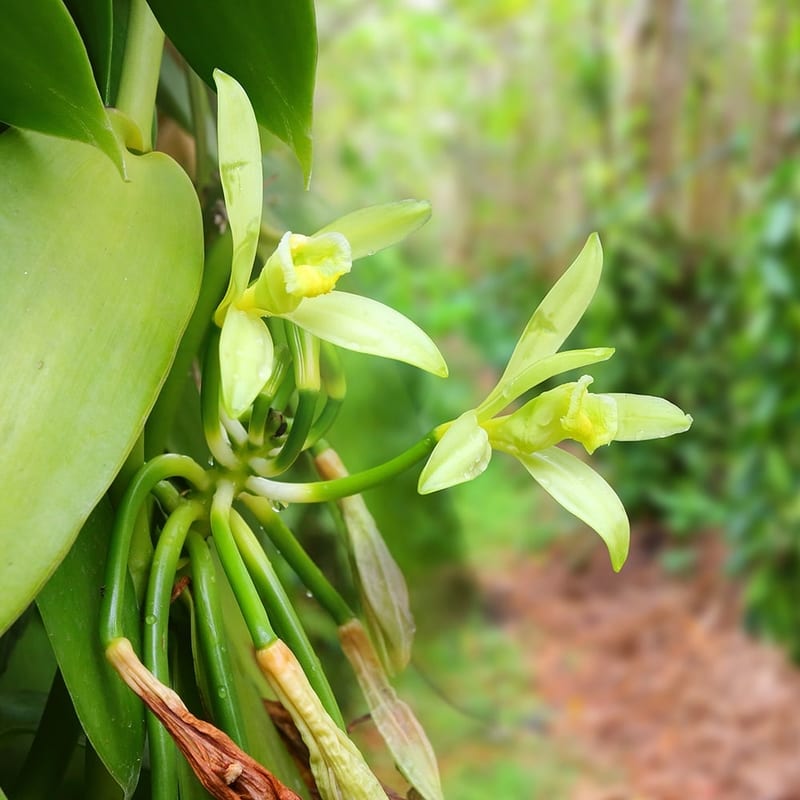
Investing in Agriculture raises eyebrows,and quite rightly too. Most British investors have a rule to avoid it, full stop. Yet this is crazy, because if you look at stock markets round the world, old British plantation companies are sitting pretty, cash and asset rich,impervious to market disasters. Get it right, and you make serious money for the least amount of work.
I remember a farmer friend of mine telling me that one year, twenty years ago, he planted wheat when everybody else didn’t. Rains were perfect, and he reaped a monster crop when there was a market shortage. He made a fortune, enough to pay for his kids’ entire private education. That was in one year!
How do you make sure you are in the right year? The simple answer is fashion. Demand for agricultural products is obvious. We have to eat. Yet the main staples are tied up in the hands of major players. Here in Indonesia, this is even more the case. You do not get involved in rice unless you really, really know what you are doing and have strong political connections. Main crop shave political ramifications; in other words, stay away.
Other crops go in and out of fashion. Coconuts produce copra, dried flesh, from which the oil is pressed. The world switched to other oils, like the poisonous canola which requires massive amounts of processing to make edible, but is still cheaper than Coconut oil.
Now, Indonesia has over two million hectares of unused coconut plantations, because nobody wants the oil, even though coconuts cost ten cents each on the plantation. I’ve personally been asked to help with the entire output of Mouton Parigi Province, which is 300,000 tons of coconuts every year. However, I cannot help, for the simple reason of logistics. Even when we can make new products, like coir and compost, the province is too remote to make economic sense.
So, we start from the outcome. Sales. How do you sell your crop? For some crops, there is a world shortage, creating demand. This is encouraging! Saffron! The most expensive spice in the world. Labour intensive. Perfect for Indonesia, except it is a temperate crop that grows ideally around the Mediterranean. It’s a crocus. Maybe it would grow in the mountains, but it probably needs a winter to create the quality.
By the same token, there are innumerable thoughts and ideas of growing non-native species to meet demand. This can be a good idea. No local pests. No disease. However, it is entirely possible that some local creature finds it irresistible. So, never be the first to try something new. Let others take those risks of compete crop failure. Find something that locals already know how to grow. Even better,if you can add something to the process, which will give you an edge.
As an aside, while you explore these options, there are always other opportunities. For example, the current epidemic means that natural rubber is in demand. There is opportunity for those with buyers to purchase raw latex in Indonesia for export. We have the latex, through our excellent contacts in Kalimantan, but no buyers and we are not going to put effort into this when the demand is likely to fall and when Malaysia, next door, is a better supplier.
While there are a number of crops that have potential, at Royal Spice Gardens we are focused on vanilla. This is because the demand is enormous and likely to stay that way, while growth and processing are complicated and not properly understood. Farmers grow vanilla very well, but harvest too early, thus reducing vanillin content, and do not process fast enough, thus losing content. We can add to the export value, because we know when to harvest and how to process. We expect that in coming years there will be lots of vanilla on the market. Poor quality vanilla, with low vanillin content. Nevermind what it looks like. We forecast that in the coming years we shall see a wider gap between the price of low quality and high quality vanilla.
Which brings us to the main investment criteria.
Quality.
Royal Spice Gardens is an Indonesian Foreign Investment Company, in Indonesia known as a Perusahaan Modal Asing (PMA).
NIB Licence number 0220100502286. NPWP: 94.830.504.0- 905.000.
PT Royal Spice Gardens Indonesia, Jl. Raya Pejeng, Tampaksiring, Gianyar, Bali 80552, Indonesia
Website by Simia Solutions / Cre8 Design Studio
Powered by Pak Kriss’s Compliance Framework.
Even in uncertain times, credible, stable & realistic opportunities are available for the astute investor.
Get the edge by obtaining clear, concise and rapid information. Fill out the form to receive our latest prospectus!